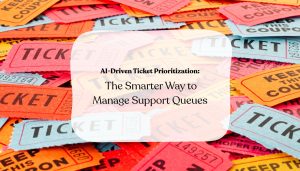What if we told you that 74% of your employees are at risk of burnout? That a third of your workers will leave your company within three years. And the turnover rate among your team members is projected at about 40%?
You’d probably call us “negative Nancys” and tell us to get out of your office.
But if you run a contact center you should really listen to us.
First of all, because these numbers are true (Toister Solutions). And high turnover and unmotivated agents cost contact centers a lot of money. According to one report, the cost of replacing a frontline employee is about 20% of a full annual salary. For a contact center of about 50 employees this could translate to more than $100,000 yearly in turnover costs. (CRM Gamified)
Second, because agent motivation is directly related to agent performance. Which, in turn, is linked to customer satisfaction.
“Employee performance is essential to customer satisfaction, which, in turn, creates customer loyalty.” (Journal of Extension)
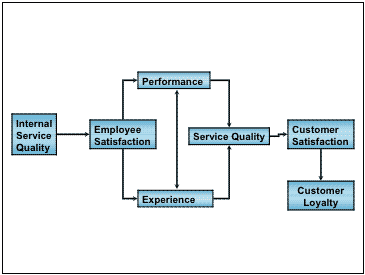
And third, because we talked to a genie in a bottle and he granted us the all-knowing power and the solutions to the problem.
Just kidding. Well, no, not really.
Robert Fulghum’s Kindergarten Lessons
We did refer to a very wise man and his name is Robert Fulghum. He is a well-known writer and in 1986 he wrote a book called “All I Really Need to Know I Learned in Kindergarten.” As it turns out, most lessons we need in life we already learned. In kindergarten.

And as we look for strategies to motivate contact center agents those lessons still apply (well, with a tweak or two). Of course, we also added some expert opinions on the matter, along with our own experiences of running a contact center.
What this magical formula produced is a true comprehensive guide that can really help managers motivate contact centers agents. So get on the magic school bus, folks. We’re going to kindergarten!
Lesson 1: Share everything.
Sharing is caring, everyone’s kindergarten teacher would say. Well, contact center customers agree.
In fact, one of the top aspects contributing to customer frustration is having to repeat oneself to various agents.
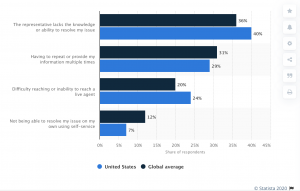
Source: Statista
Between being transferred from one agent to another, having to call the center multiple times, and having to repeat themselves, customers have every right to be upset. And so do contact center agents. It’s really not their fault that they do not have the communication history and details about each customer’s specific case. Yet, they are the ones who have to deal with the upset customer. Who wouldn’t lose motivation from that?
“Nothing is more frustrating for customers than connecting with a customer service agent that doesn’t have access to account information or has no record of a previous customer service call. It also sets up the agent for failure and eventual burnout. The challenge for enterprises is that they collect and store vast amounts of customer information in ERP, MRP, CRM, marketing automation, web analytics, call center platforms and other IT-systems. These are all built upon a patchwork of platforms and technologies that don’t easily share information. Putting this information at the fingertips of customer service – the 360° view of the customer – is mission critical for customer service, but incredibly challenging from an enterprise IT perspective.” (Chris Bergh, CEO of DataKitchen, Inc). To tackle these challenges, businesses might look into integrating Singapore ERP software, which helps streamline data from disparate systems into a cohesive platform.
Using a Customer Data Platform, a system that provides an all-inclusive picture of the customers, their interactions with the company, and complete communication history empowers customer service employees. Sharing all of the information relevant to each account ensures efficient and effective interaction between agents and the customers.
Yes, sharing is caring and both customers and agents will appreciate the care of efficient interactions.
Lesson 2: Play fair.
Here we want to concentrate on everyone’s favorite – play.
Any job can become more engaging and inspiring if we introduce play. In fact, gamification is actually a well-known psychological strategy that does wonders for employee motivation. It works because it prompts engagement in an interactive way. Our brains love to play!
“There is good evidence that if you allow employees to engage in something they want to do, (which) is playful, there are better outcomes in terms of productivity and motivation.” (Dr. Stuart Brown, founder of the National Institute for Play)
Both studies and real life experiences show that introducing elements and periods of play at work increases creativity and boosts productivity. “Play can also lower your stress levels, boost your optimism, and increase your motivation to move up in a company and improve concentration and perseverance,” one research shows (Fox)
Gamification can be a great tool that can help engage and motivate contact center agents.
For example, HelpSquad, a B2B customer support contact center, introduced LiveHelpNow’s challenge game competition to its agents. By letting their agents track and compare their individual performance scores with other agents and teams, HelpSquad was able to turn what was once viewed as “work” into a rewarding competition. This initiative has encouraged agents to go above and beyond to make customers happy, respect customers’ time, get 5 star feedback, and to keep the first call resolution rate near 100%.

Introducing play and recognizing winners can do wonders to motivate contact center agents.
So introduce gamification to motivate your team to play and play fair.
Lesson 3: Don’t hit people.
Well, we won’t waste your time advising you not to hit your employees. (We sincerely hope you already know not to do that.) But we do want to take a moment to stress the importance of kindness and encouragement at work.
“Offering employees a healthy and harmonious working environment where everyone supports each other [is so important]. A contact center job could be stressful at times, but it won’t be such a big issue if there is enough guidance and encouragement to go around.” (David Weingot, CEO of DMAC Security Guard Services)
Work environments where managers employ tactics such as yelling, berating, or scolding, create stress and negatively impact team motivation.
“When a boss decides (or doesn’t decide but does it anyway) to yell, what they are doing is inserting stress into the brain of their employee(s). Stress creates stress hormones, which then shuts down higher cognitive function as a result. So as the boss stands there yelling, their employee gets dumber by the second whether they like it or not. 10-20 IQ points dumber. In addition, immune system function diminishes, making it more likely to miss work. It also doesn’t exactly endear the employee to their boss, which can reduce motivation and engagement. All this piles up to affect the employees (and indeed the whole culture of the department and/or company) in some very specific ways, none of them being positive.” (Mind Hacking Happiness)
Pretty crazy how such a common thing as yelling can cause so much damage to one’s emotional health, isn’t it? That is, of course, the opposite of motivating an employee. So don’t hit people, even with words.
Lesson 4: Put things back where you found them.
This important lesson taught us the basics of being organized back in kindergarten. In a contact center setting managers must focus on structural organization.
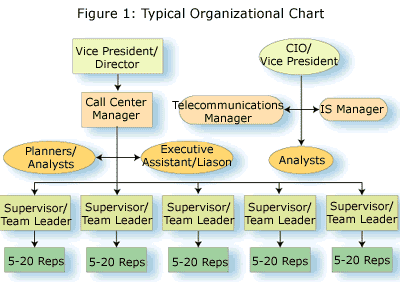
Source: EDN
Benchmark Portal, an agency that specializes in training and management of contact centers, defines organizational structure as the foundation for a contact center success.
Creating organizational charts using the org chart template that work for each specific contact center is essential for effective operations. Moreover, keeping organizations flexible to adjust, as needed, to shrinkage, growth, functional changes, mergers and acquisitions, outsourcing, and remote workforce is also very important.
Lesson 5: Clean up your own mess.
If you make a mistake at work, own it. Ultimately, owning your mistakes can help boost your #career. #lifetips https://t.co/UcdERqxuHu pic.twitter.com/eham8HvQgt
— Debbie McGill (@DebbieM34622355) September 8, 2020
This lesson teaches us two things.
The first is that we all make messes and mistakes. We all screw up. In fact, we have to fail in order to succeed. And once we fail – and that’s the second part of the lesson – we must take responsibility for our mess, learn from it, and move on as wiser, more experienced, more ground individuals.
“Playing the blame game never works. A deep set of research shows that people who blame others for their mistakes lose status, learn less, and perform worse relative to those who own up to their mistakes. Research also shows that the same applies for organizations. Groups and organizations with a rampant culture of blame have a serious disadvantage when it comes to creativity, learning, innovation, and productive risk-taking.” (Harvard Business Review)
Nothing demotivates a team as an unfair blame game and someone’s unwillingness to admit to a mistake. To avoid that it’s essential to create an environment that allows mistakes. Attacking and reprimanding whenever someone does something wrong is ineffective and damaging management. Instead offer encouragement and highlight the importance of learning from the mistake.
At the same time not learning from a mistake leaves a chance that it will happen again. The learning process begins when we, as our kindergarten teacher told us, and our employees, clean up our own messes.
Lesson 6: Don’t take things that aren’t yours.
This lesson relates to anything and everything in life.
But in the contact center it can also relate to the customers. Taking someone else’s customer’s call, email, or live chat communication might seem like an innocent thing. This practice, however, common as it is, is quite damaging to contact center operations.
Transferring customers is a bad practice.
That is why high First Contact Resolution (FCR) rates are indicators of successful contact center operations.
- First of all, if an agent resolves the problem on the first customer contact both the company and the customers are saving time and money.
- Second, as we discussed earlier, one of the major customer frustrations has to do with having to talk to multiple agents, often repeating oneself. That lowers customer satisfaction.
- Third, if an agent does not know how to solve a problem, but works behind the scenes with a member of the team who does, the initial agent learns something new. That increases the agent’s knowledge and improves his or her skills. It allows for growth and improvement. And that, in turn, helps further motivate contact center agents. If another agent takes the call or live chat the answering agent learns nothing.
There are various ways to improve FCR rates – from implementing whispering technology training agents to focus on FCRs specifically. To learn more feel free to check out our article on the topic: 7 Tips to Boost Your Call Center’s FCR Rate.
Lesson 7: Say you’re sorry when you hurt somebody.
Apologizing is never an easy thing. It requires humility, empathy, and an ability to overcome our own ego. Yet, it’s necessary.
Here is what sociologist, Dr. Herriet Lerner, says about the power of apology.
“Our apology can help free the hurt person from life-draining anger, bitterness, and pain. It validates their reality by affirming that, yes, their feelings make sense, we get it, and we take full responsibility for our words and actions—or our failure to speak or act.
The apology is also a gift to ourselves. Our self-respect and level of maturity rest squarely on our ability to see ourselves objectively, to take a clear-eyed look at the ways that our behavior affects others, and to acknowledge when we’ve acted at another person’s expense. The good apology earns us respect in the eyes of others, even though we may fear the opposite.
Finally, the good apology is a gift to the relationship. Two people can feel secure in the knowledge that if they behave badly, even fight terribly, they can repair the disconnection.” (Psychology Networker)
In a contact center setting, where stress levels run high, a sincere apology, when it is necessary, can do wonders. It can strengthen relationships between co-workers and managers. It can show employees that they matter and they are valued. And that can help motivate contact center agents.
While the act of apology is vital, the manner of apology is equally important. If it’s not done right it will only made matter worse.
Here are nine rules of effective apology from Lerner.
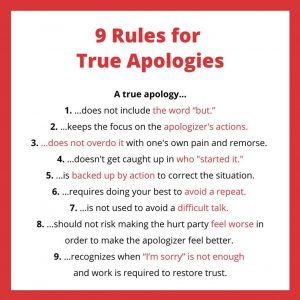
Lesson 8: Wash your hands before you eat.
This one was very important in kindergarten. It can save lives in the world of 2020.
Global COVID-19 pandemic forever changed the way we see, think, and act around people. Handshakes gave way to elbow bumps. Meetings turned into emails or Zoom calls. And hand sanitizer is everywhere.

Whatever anyone’s views and precautions can be, it’s important to respect them. Managers have the responsibility to make sure their employees feel safe at work. That relates to physical safely as well as emotional and psychological.
In a world where well-being is being challenged by employees due to the various complications that the COVID-19 pandemic has placed in their lives, it’s important for employers to support and help where they can. #EmployeeBenefits #Benefits https://t.co/Ev3Ue16MCE
— JA Benefits (@jabenefits) September 15, 2020
So offer plenty of options. Be flexible in terms of remote work. If on-location work is a must, ensure physical safety using modern tools. Provide emotional support to team members.
And whatever you do, wash you hands before you eat.
Lesson 9: Flush.
Hm. We could go different ways with this one. But how about this one?
Don’t carry grudges. Whatever happened yesterday, let it go. Flush it down the toilet. Throw it away with the bath water. Let it be.
Grudges are bad for us. They are bad for our relationship, our productivity, and our motivation. Studies show that grudges actually have consequences on our physical being. They raise our stress levels, lead to anxiety and depression, cause high blood pressure, affect our immune system, and interfere with our focus and self-esteem. (Fast Company)
How can we let go of a grudge?
By first acknowledging and validating our feelings and the feelings of others. Then, we can let go of the constant stream of “should haves” and “could haves,” which only keep us stuck in the past. The next step involves centering our mind and focusing on the present. Meditation and mindfulness are great tools for that and continuous practice can do wonders for every aspect of our lives. Finally, communicating with whoever has offended us and addressing the problem head on is the healthiest way to move on. (Fast Company)
Healthy relationships in the workplace motivate contact center agents. Letting go of past hurts and moving on can contribute to that. So, flush.
Lesson 10: Warm cookies and milk are good for you.
If we didn’t learn this in kindergarten we learned it through life – food makes people happy. Happy people make good employees.

Buying employees lunch is a practice many employers adopt. And there are great reasons to do so.
Quickbooks presents five.
- Free lunch boosts morale and productivity because it promotes positive work culture.
- Getting free lunch keeps employees focused as they can concentrate on work more.
- Free lunch keeps healthy eating habits and, therefore, good physical health. No need for them to wolf down a sugary granola bar or reach for fast food options.
- to help choose wisely.
- Perks like this help recruit new team members.
- Free lunch can positively affect the bottom line as positive work culture could mean better employee retention. (Also, don’t forget: employee lunches are tax deductible)
So whether you opt for hot lunches or warm cookies and milk, food is good.
Lesson 11: Live a balanced life – learn some and drink some and draw some and paint some and sing and dance and play and work everyday some.
Ok, let’s not get carried away over here. We don’t actually condone drinking at work (unless it’s some delicious kombucha). Dancing, on the other hand, we can negotiate.
What we’re advocating here is balance.
Here is an account of a former contact center employee on her past experiences.
“The burn out of having to answer and work with 60 calls per day with limited breaks and limited lunch times. What happens in call centers that causes the burn out is a lack of care for those answering calls, the lack of anywhere to go to report abuses happening to those who answer these calls (including active masterbation on the phone by callers, and other very serious offenses) or counseling to help the call center worker to deal with these calls. Burnout is expected.” (Mary Miller)
Sounds terrible, doesn’t it?
Beyond lack of support for the employees, this contact center forced full days of answering calls on its agents. Michael Kansky, who has successfully run HelpSquad contact center for the last six years with minimum agent turn over, recommends a different strategy.
He suggests no more than 5.5 hours per day of customer interactions, on any channel. The remainder of the work day should involve professional development. That can include learning new technologies, taking trade skills classes, or reading up on new communication and customer experience techniques. Such use of time would result in better skilled workers, reduced burnout, and happier employees, he says.
And at the end of the day they can even do a happy dance.
Lesson 12: Take a Nap Every Afternoon.
There probably won’t be an employee anywhere in the world who would not appreciate a nap at work. And some companies have taken the trend to their places of business and have seen some good results. In fact, studies show that such practice is quite beneficial. Researchers found that by implementing a nap, as part of daily routine, productivity improves 34%, memory 36% and the quick shot of energy can last eight hours. But, most impressive, job attentiveness heightens 100%.(European CEO)
Nap pods at the office are just some unusual, but innovative perks successful companies, like Google, use to boost productivity. Others include discounted massages, video games, free haircuts, and even hybrid car subsidies.
Here is what Neil Patel, one of the top entrepreneur influencers on the web says about those practices.
“All these perks come at a cost for Google. But so does employee dissatisfaction and high turnover. There is a lot of competition for talent in Silicon Valley (and around the globe for that matter) and when you can retain your employees, it means less time and money spent recruiting. This culture has paid off for Google, as they consistently rank among the best places to work.” (Neil Patel)
A contact center might not have the funds, the time, or the resources to offer nap time or other trendy perks. However, it doesn’t mean managers shouldn’t consider boosting positive culture in their organization. Small things go a long way. Here the Olson Group lists 25 Easy and Inexpensive Staff Benefits that can help.
Lesson 13: When you go out into the world, watch out for traffic, hold hands, and stick together.

This one brings the memories of walking together with our classmates. We held on to each other, and learned what it meant to literally have each other’s back. Workplace should not be any different.
In order to motivate contact center agents, managers must show them that the company is behind them. Offering support when an agent needs it is essential. Simon Black, CEO of Awaken Intelligence suggests listening for cues of struggle during agent calls and implementing other strategies to recognize the need for help.
Trusting agents by not putting a script in front of them and allowing them the autonomy to do their job is another winning strategy. After all, autonomy plays a big role in job satisfaction.
“New research into workplace culture has found that employees with higher levels of autonomy in their work reported positive effects on their overall well-being and higher levels of job satisfaction.” (Science Daily)
Additionally, recognizing and praising employees can lower churn, preventing agents from seeking employment elsewhere.
“[A recent study examined] how recognition and retention are related. Out of 1,500 respondents, 63% of those who were “always” or “usually” recognized said that they are “very unlikely” to job hunt in the next 3–6 months. In contrast, only 11% of those who are “never” or “rarely” recognized would agree.” (HR Technologist)
Dr. Susan Koczmarski, author of books on leadership and innovation, believes that praise in the workplace can do wonders for motivation. “View praise as an on-going and essential ingredient of people management. Praise serves to motivate and energize our personal core. Praise can help make everyone in an organization feel valued, she says.
So while there is no need to literally hold your employees’ hands, having their back is vital.
Lesson 14: Be aware of wonder. Remember the little seed in the Styrofoam cup: the roots go down and the plant goes up and nobody really knows how or why, but we are all like that.

One of the determinations of something being alive is its ability to grow. Growth is a natural need everyone has. Without it we do not feel alive. This is true in every aspect of life, including working at a contact center.
According to one report 76 percent of employees are looking for career growth opportunities. Additionally, 24% higher profit margins can be the result of companies who invest in training. And 40% of employees with poor training will leave the company within the first year. (HE Exchange)
So this is proof that using those 2.5 hours every day, not answering customer inquiries, is a good practice for employees and the contact center itself. Offering ways to improve, grow, and develop new skills engages the employees and benefits the company.
We all seek growth. If managers want to motivate contact center agents, they must offer proper training and opportunities for growth.
Beware of wonder. Fulfil the need for growth.
Lesson 15: Goldfish and hamster and white mice and even the little seed in the Styrofoam cup – they all die. So do we.
We don’t mean to be gloomy here. But what we do want to point out is that before everything dies it fulfils its purpose. As humans we are preprogrammed to seek our purpose in life. Whether we’re raising children, growing plants, or talking to a disgruntled customer, we need to know that what we do matters.
“When workers feel they have a human workplace that fosters recognition and appreciation while empowering individuals, strengthening relationships, and providing a clear purpose aligned with achievable goals, they are: twice as likely to feel like they can grow in the organization; 41% more likely to feel their work has meaning; and 78% more likely to trust their manager.” (Protocall Group)
There are different ways to demonstrate the meaningfulness of an employee’s work. Showing him or her the results of her work, and sharing positive feedback from customers can increase the awareness of positive change the work endures.
Additionally, spend quality time with them, listen to their concerns, and offer counseling, like the contact center agent above suggested. All that can help motivate contact center agents.
Like the kindergarten lesson says, we all die. Let us all fulfil our purpose before we go.
Lesson 16: And then remember the Dick-and-Jane books and the first word you learned – the biggest word of all – LOOK.
….and listen, we should add.
If there is something all humans crave (besides food), it is the sense of belonging.
Ensuring agents feel like they belong where they work, like their work makes a difference, like they’re values, and they matter – all those things will motivate them. And it will prevent them from looking elsewhere. Most importantly, if they are satisfied with their treatment at work they will do their best.
So look for what they need. Listen for what they want. And motivate contact center agents by letting them know they matter.
“Everything you need to know is in there somewhere. The Golden Rule and love and basic sanitation…[…] …and it is still true, no matter how old you are: when you go out into the world it is best to hold hands and stick together.” (Robert Fulghum, All I Really Need to Know I Learned in Kindergarten)
How can a positive work environment motivate call center agents?
A positive work environment motivates call center agents by reducing stress and creating a sense of belonging. When agents feel valued, they’re more likely to stay engaged, perform better, and stay committed to their goals. Simple actions like open communication, recognition, and team support can greatly improve their outlook. A supportive culture not only boosts morale but also fosters loyalty and productivity.

